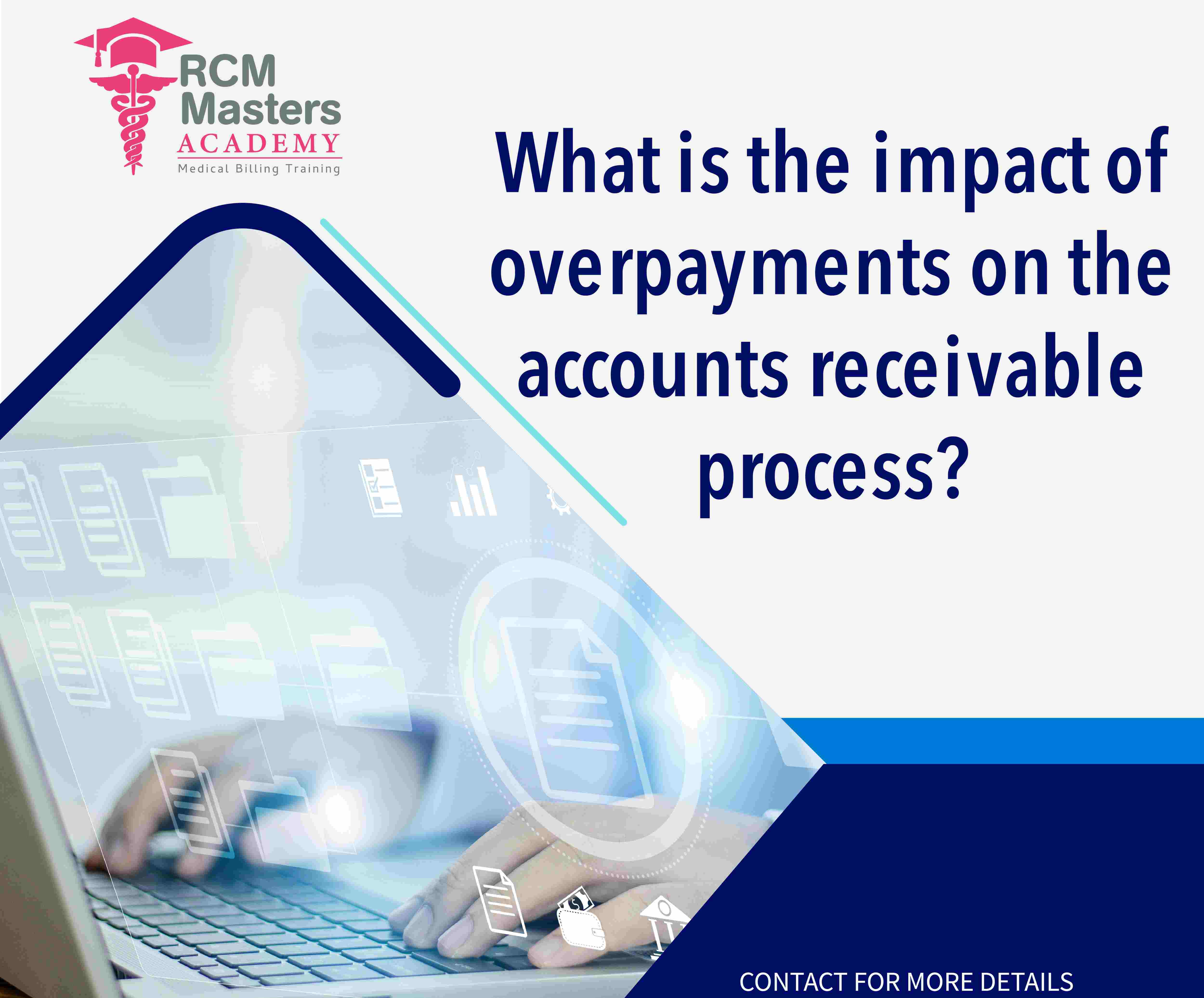 info@rcmmastersacademy.com
info@rcmmastersacademy.com

The accounts receivable process is a critical aspect of any business that deals with customers on credit terms. It involves managing invoices, tracking payments, and ensuring that outstanding balances are collected in a timely and efficient manner. One issue that can arise during this process is overpayments from customers. While it may seem like a good thing to receive more money than expected, overpayments can actually have a negative impact on the accounts receivable process. We will explore the impact of overpayments on the accounts receivable process.
Firstly, overpayments can create confusion and errors in the accounting system. When a customer makes an overpayment, it can be difficult to determine which invoice the payment should be applied to. This can lead to manual errors, such as applying the payment to the wrong invoice or allocating it incorrectly. These errors can cause delays in processing payments and may result in inaccurate financial records, making it harder to manage the accounts receivable process effectively.
Secondly, overpayments can create a strain on customer relationships. While some customers may not mind overpaying, others may feel frustrated and confused. Customers may become irritated if they have to go through the hassle of requesting a refund for an overpayment. This can lead to negative feedback and harm the reputation of the business. In some cases, customers may even withhold future payments until the overpayment is resolved, which can result in further delays in payment processing.
Thirdly, overpayments can result in a cash flow issue for the business. While it may seem like receiving more money than expected is a good thing, it can actually be detrimental to cash flow. Overpayments may not be immediately recognized as overpayments, which means that they are included in the accounts receivable balance. This can lead to an overstatement of accounts receivable and an understatement of cash, making it harder to manage the cash flow of the business effectively.
Fourthly, overpayments can result in additional accounting work for the business. If a customer requests a refund for an overpayment, the business must process the refund and adjust its accounting records accordingly. This can be time-consuming and require additional resources, such as staff and software, to manage effectively. This additional work can create a strain on the business and result in additional costs, such as staff overtime and software upgrades.
Finally, overpayments can result in compliance issues. Businesses must comply with various regulations and standards, such as generally accepted accounting principles (GAAP) and International Financial Reporting Standards (IFRS). Overpayments can create discrepancies in financial statements, which can result in compliance issues and potential legal ramifications.
In conclusion, while overpayments may seem like a good thing, they can have a negative impact on the accounts receivable process. They can create confusion and errors in accounting, strain customer relationships, result in a cash flow issue, create additional accounting work, and result in compliance issues. To avoid these issues, businesses must have a clear process in place for handling overpayments, including policies for refunding overpayments and allocating payments correctly. By managing overpayments effectively, businesses can streamline their accounts receivable process and maintain positive customer relationships.
You can enroll for our Online Medical Billing Training here: